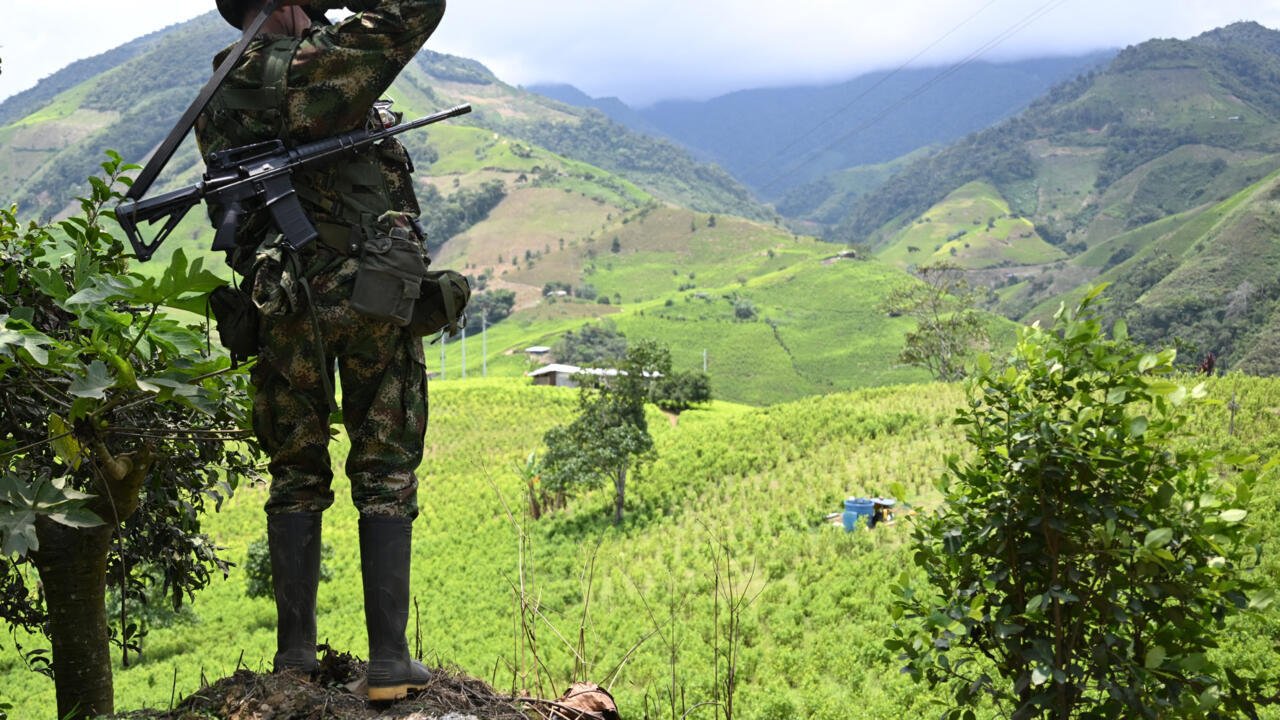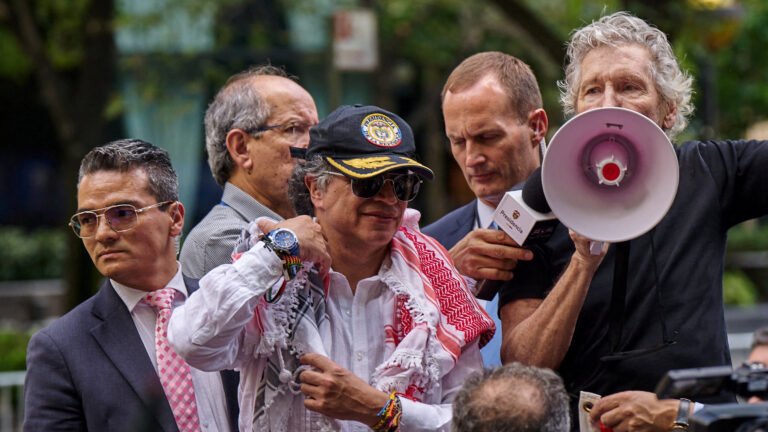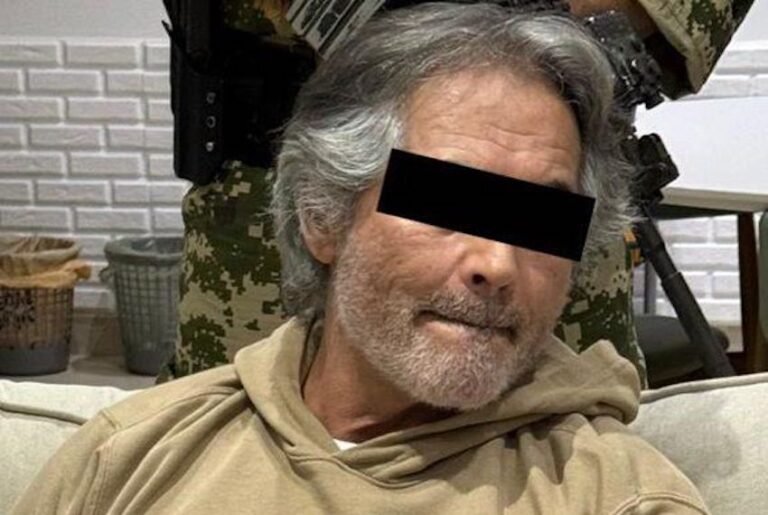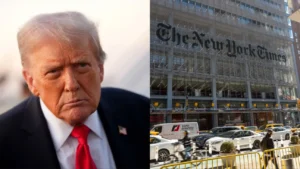The Trump administration said Monday that Colombia had failed remarkably in its obligations to combat drug trafficking, but that the U.S. will continue to provide funds to the country.
Although the decision to decertify Colombia but continue the assistance avoids what experts described as the worst possible scenario of cutting millions in funding, it remains a significant symbolic movement.
This is likely to further damage the already tense relationship between Washington and Bogota at a time when the Trump administration claims that the fight against drug trafficking is one of its top priorities. The government has militarized its response and carried out two deadly attacks on suspected traffickers in international waters around South America in recent weeks.
The presidential determination, published on Monday night, noted that although Colombia has failed remarkably over the past year, U.S. assistance to Colombia is vital to the national interests of the United States. He attributed the decertification to Colombian President Gustavo Petro, an open critic of the president of the United States. Donald Trump.
The United States also appointed Afghanistan, Bolivia, Myanmar, and Venezuela for demonstrably failing to comply with anti-narcotics agreements over the past year.
While Petro has called for his country to create “peaceful alternatives” to coca cultivation rather than prosecute farmers and small traffickers, the Trump administration has intensified its war against traffickers, designating numerous Latin American cartels and criminal organizations as foreign terrorist organizations.
In Colombia, coca cultivation and cocaine production have reached record levels under President Gustavo Petro, and his failed attempts to seek agreements with drug-terrorist groups have only aggravated the crisis, he said.
Security institutions and municipal authorities in Colombia continue to demonstrate skill and courage in confronting terrorist and criminal groups, and the United States values the service and sacrifice of its dedicated public servants at all levels of government, he added. Colombia’s failure to meet its drug control obligations over the past year rests solely on its political leadership.
I will consider changing this designation if the Government of Colombia takes more aggressive measures to eradicate coca and reduce cocaine production and trafficking, as well as hold accountable those who produce, traffic, and benefit from cocaine production, even through better cooperation with the United States to bring Colombian criminal organizations to justice, he added.
Petro addressed the news at his weekly televised cabinet meeting on Monday night.
The U.S.
“It decertified us, after dozens of deaths between police, soldiers, and civilians trying to impact cocaine trafficking,” Petro said.
Colombia is the world’s leading producer of cocaine, accounting for nearly two-thirds of total alkaloid production, according to the United Nations Office on Drugs and Crime (UNODC).
Last week, in an effort to be recertified, a high-level Colombian delegation visited Washington to emphasize the “strong cooperation” between the two countries and the progress they had made in the fight against drug trafficking.
General Carlos Fernando Triana Beltrán, director general of the Colombian National Police, and Admiral Francisco Hernando Cubides Granados, commander general of the Colombian Military Forces, said they have seized hundreds of metric tons of cocaine and destroyed hundreds of hectares of coca crops.
They pointed out that Colombia is at the forefront of the war against illicit drugs. Just a few weeks ago, they said, more than a dozen police officers and their work dogs died when their helicopter, provided by the State Department, was shot down by armed dissidents.
“Our presidents are on different sides of the ideological division, but on the issues of the fight against drugs, of the fight against these transnational criminal organizations, we have a national commitment,” said Colombia’s ambassador to the United States last week, Daniel García-Peña. We do this because drug trafficking has affected our country more than any other country in the world, and we will continue to do so no matter what.
Obviously, we can do much better if we do it together.
Petro has repeatedly clashed with the Trump administration. Just a week after Trump’s start of his second term, Petro blocked the landing of two U.S. military flights with deported migrants, accusing the U.S. of treating Colombian migrants as criminals. Colombia subsequently agreed to receive the deportees and deployed its own aircraft to help in their return.
Petro recently criticized the deployment of several Washington warships in the Caribbean Sea and its deadly attack on an alleged drug boat that left 11 dead.
The U.S. carried out another deadly attack on an alleged drug boat on Monday, Trump said.
If Colombia were decertified, the drug traffickers would be the winners and the nations would lose, because we would no longer have the capacity to contain these drugs and reach other shores, warned Colombia’s Defense Minister, retired General Pedro Sánchez, in an interview with CNN last week.
The last time Colombia was decertified was in 1997, under the presidency of Ernesto Samper. Since then, the Andean country has become Washington’s most reliable ally in South America on national security and defense issues.
Colombian and U.S. agencies are working closely together on efforts to counter drug trafficking and transnational crime. Colombian agents train regularly with the U.S. military, and the Colombian army is a major customer of U.S. gun manufacturers. Historically, the U.S. has provided tens of millions in security assistance to Bogota.
Retired U.S. Ambassador Todd Robinson, who served as the State Department’s top official for international narcotics and law enforcement issues during the Joe Biden administration, said it would be a very bad sign if the U.S. and Colombia couldn’t maintain their relationship.
Many in Colombia resent the idea that only drug-producing countries should fight drug trafficking.
Gloria Miranda, who is in charge of the crop replacement program run by the Colombian state, told CNN that consumer nations must do their fair share and support us, because that is the other side of drug trafficking.
Andrea Gomez and Fernando Ramos contributed to this report.














